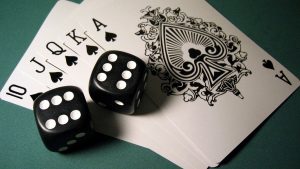 What are our values? According to ethical standards, we value moral equality. In culinary arts, we value taste. And in poker, we should value money the most, because we strive to optimize our game solely for it. But do we value it?
What are our values? According to ethical standards, we value moral equality. In culinary arts, we value taste. And in poker, we should value money the most, because we strive to optimize our game solely for it. But do we value it?
It has long been believed that poker players must be emotionless, not show emotions, and care only about money. In fact, even if it is not very obvious, players care about many more things. We touched on this topic a bit when we talked about tilting. Poker players tend to make financially unfavorable decisions quite often.
Let's consider some ideas they choose instead of money: reducing variance, reducing anxiety (by playing tighter), wanting to have fun, trying to avoid boredom, chasing excitement, satisfying ego, feeling superior to opponents, feeling cool, feeling part of a community, competing, venting anger, getting good sleep, maintaining a balanced lifestyle, feeling like you're improving, and the list could go on and on.
As poker players, we make such compromises quite regularly. Although you probably never thought of them very strongly as such, that's what they really are. You should notice these traitors trying to destroy your rationality. These choices should be thought of as indicators showing your values.
If you choose to end a profitable match just because it's boring to you, or choose to play more aggressively to have fun, or if you decide to play for 8 hours straight to break even, you shouldn't think of these choices as merely irrational actions against your choice to “make as much money as possible.” In fact, these choices mean that your values are entirely different, and you trade them for $ EV. You might not choose those values rationally, but that's another matter.
You may notice that when you have a session where you aim to break even, you actually value not the break-even itself, but the act of breaking even at that moment. And that's not the same. This is an important observation – not all values are equal to each other. It's clear as day that we value money very differently than we value breaking even. This difference is known as the distribution of desires in a certain order.
First-order desires are those you want at any given moment. And the things you want to want or the values you want to cultivate are second-order desires. For example, if you're trying to quit smoking, then the first-order desire would be to immediately smoke a cigarette to relieve the craving, while the second-order desire (what you would want to want) would be not to want that cigarette. So, you try to push and force yourself to eventually not want to smoke a cigarette, to change your first-order desire. There will almost always be quite a bit of conflict between the first and second desires.
Needless to say, you should try to bring your current self closer to your ideal self. But problems arise when a poker player mistakenly believes that making money is the only second-order desire. He starts to think that money is the only thing to want. However, money itself is not very significant. Money is valuable as long as it leads to happiness. Happiness should be the second-order desire, and money as a means is needed as long as it can provide that happiness. But happiness is also defined in other ways, such as the ability to play fun matches, the ability to avoid boring sessions, good sleep or taking care of your body, reducing variance and stress, or even challenging yourself by choosing a tough opponent. Often we choose happiness over profit in many ways. And that's perfectly fine. Of course, there are emotions we should want to avoid, but denying the entire emotional life of a poker player is a big mistake. Poker occupies a certain place in the context of your life. You don't need to want to become an emotionless robot – that's not even possible. Denying emotions won't make you happy, and isn't that the whole point?





